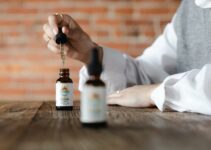Did you know that 1 in 3 adults in the US struggles with sleep? I've discovered 9 key tips for achieving regular, restful sleep with CBD oil. From understanding dosage to timing intake and monitoring sleep patterns, these tips can make a real difference. Let's explore how to choose the right product, adjust dosage, and consider other sleep factors to improve our sleep quality.
Key Takeaways
- Start with a low dose and gradually increase until desired effects are reached.
- Consult with a healthcare professional for personalized dosage and potency recommendations.
- Consider different types of CBD oil available and determine personal preferences and desired effects.
- Taking CBD oil in the evening, about 30 minutes before bedtime, can optimize the sleep-promoting effects.
Understanding CBD Oil Dosage
How much CBD oil should I take for better sleep? Understanding CBD oil effects and benefits is key to determining the right dosage. It's important to start with a low dose and gradually increase until the desired effects are reached. Adjusting CBD oil intake should be done carefully and under the guidance of a healthcare professional, especially if using other medications. The benefits of CBD oil for sleep are well-documented, but it's crucial to be aware of potential side effects such as dry mouth, diarrhea, reduced appetite, drowsiness, and fatigue. Monitoring how CBD oil affects me personally is essential in finding the optimal dosage for improving sleep quality without experiencing adverse effects.
Choosing the Right CBD Oil Product
When selecting a CBD oil product, it's important to consider the different types available, along with their dosage and potency. Understanding the differences between full-spectrum, broad-spectrum, and isolate CBD oils can help determine the best option for individual needs. Additionally, finding the right dosage and potency that aligns with personal sleep goals is crucial for achieving the desired results.
CBD Oil Types
When choosing a CBD oil product, it's important to consider the specific type that will best meet my needs. There are various types of CBD oil products available, each with its own unique features and benefits. Understanding the differences between these types can help in making an informed decision. Here's a comparison of different CBD oil types to consider:
| Type | Extraction Method | Benefits |
|---|---|---|
| Full-Spectrum | CO2 extraction | Contains all cannabinoids and terpenes |
| Broad-Spectrum | CO2 or ethanol | Contains multiple cannabinoids, no THC |
| CBD Isolate | CO2 or solvent | Pure CBD, no other cannabinoids or THC |
Choosing the right CBD oil type depends on individual preferences, desired effects, and sensitivity to THC. Whether seeking the entourage effect of all cannabinoids or a THC-free option, understanding these distinctions is crucial for selecting the most suitable CBD oil product.
Dosage and Potency
Selecting the appropriate CBD oil product involves considering the dosage and potency that align with my specific needs and preferences. Finding the right dosage is crucial for CBD oil effectiveness. It's important to start with a low dose and gradually increase until the desired effects are achieved. Additionally, potency refers to the concentration of CBD in the product, so understanding the potency is essential for determining the strength of the oil. When choosing the right CBD oil product, it's crucial to consider potential side effects. It's advisable to consult with a healthcare professional to determine the appropriate dosage and potency based on individual factors such as weight, metabolism, and the specific sleep issues being addressed. This personalized approach ensures safe and effective use of CBD oil for better sleep.
Starting With Low Dosage
I typically start with a low dosage of CBD oil, usually around 10-20 milligrams, to gauge its effects on my sleep patterns. Gradual adjustment is crucial when beginning with CBD oil for sleep. By starting with a low dosage, I can monitor progress and observe how my body responds to the initial intake. This allows me to assess any immediate effects and determine if the dosage needs to be adjusted. It's important to understand that CBD affects individuals differently, so beginning with a low dosage helps in understanding my personal threshold. Once I have established the impact of the initial dosage, I can then consider gradually increasing the amount to find the optimal level for improving my sleep patterns and overall well-being.
Gradually Increasing Dosage
After establishing the impact of the initial dosage, I gradually increase the amount of CBD oil to find the optimal level for improving my sleep patterns and overall well-being, often making adjustments based on my body's response. This gradual adjustment allows me to observe the consistent effects of CBD oil on my sleep quality and make informed decisions about the dosage. Here's how I approach the gradual increase in CBD oil dosage:
- Increase dosage by small increments
- I start with a slightly higher dosage, such as adding an extra drop or two to my daily intake.
- Monitor effects closely
- I pay attention to any changes in my sleep patterns and overall well-being to assess the impact of the increased dosage accurately.
Timing Your CBD Oil Intake
When it comes to using CBD oil for better sleep, timing is crucial. Finding the best times to take CBD can make a significant difference in its effectiveness. Let's explore the relationship between CBD and sleep timing, as well as the best intake times for optimal results.
CBD and Sleep Timing
One essential aspect to consider when incorporating CBD oil into your sleep routine is timing your intake for optimal results. When it comes to CBD and sleep timing, I've found that it's crucial to align the intake with your individual sleep schedule and needs. Here are some key points to consider:
- Evening Intake
- Taking CBD oil in the evening can help improve sleep by promoting relaxation and reducing anxiety, which are essential for a good night's rest.
- It's important to maintain good sleep hygiene practices alongside CBD oil intake to maximize its effectiveness.
Best CBD Intake Times
For me, the best time to intake CBD oil is generally in the evening, as it helps promote relaxation and reduces anxiety, contributing to a better night's sleep. I find that taking CBD oil about 30 minutes before bedtime allows me to unwind and prepare for a restful night. It's important to consider your own body's response and adjust the timing accordingly. Here's a helpful guide to consider when timing your CBD oil intake:
| Morning | Afternoon | Evening |
|---|---|---|
| Energizing | Focus | Relaxation |
| CBD Oil Boosts | Stress Relief | Sleep Aid |
| Productivity | Anxiety Relief | Better Sleep |
Understanding the CBD oil effectiveness throughout the day can help maximize its sleep benefits. By finding the right intake time, you can optimize the sleep-promoting effects of CBD oil.
Now, let's delve into the importance of monitoring your sleep patterns.
Monitoring Your Sleep Patterns
By tracking my sleep patterns with a journal, I can gain valuable insights into the quality and duration of my rest. It's essential to monitor how CBD oil affects my sleep cycle. Here are some key points to consider:
- Tracking Progress
- Maintaining a sleep diary to record the duration and quality of sleep can help in identifying patterns and improvements over time.
- Natural Remedies
- Alongside CBD oil, incorporating natural remedies such as meditation, relaxation techniques, or herbal teas can aid in promoting better sleep.
Understanding my sleep patterns and the impact of CBD oil allows me to make informed adjustments. This data will help me evaluate the effectiveness of CBD oil on my sleep and guide me in adjusting dosage as needed.
Adjusting Dosage as Needed
I adjust my CBD oil dosage based on my sleep patterns and overall well-being, aiming for optimal results. Adjusting timing is crucial to maximize the benefits of CBD oil for sleep. I find that taking CBD oil about 30 minutes before bedtime helps me to relax and fall asleep more easily. However, it's important to monitor the effects of the CBD oil closely. If I find that I am still having trouble sleeping or feeling groggy in the morning, I may need to adjust the timing of my dosage. Additionally, if I notice that the current dosage is not providing the desired effects, I may consider increasing or decreasing the amount based on my body's response. Regularly monitoring the effects and making necessary adjustments has been key in finding the right CBD oil dosage for my sleep needs.
Considering Other Sleep Factors
Considering other sleep factors, monitoring my caffeine intake has been crucial for ensuring a good night's sleep. I've found that reducing my caffeine consumption, especially in the afternoon and evening, has noticeably improved my ability to fall asleep and stay asleep. Additionally, I've made changes to improve my sleep environment, such as investing in blackout curtains and using white noise machines to create a more conducive atmosphere for rest. Lifestyle changes, including establishing a consistent bedtime routine and incorporating relaxation techniques like yoga or meditation, have also played a significant role in enhancing the quality of my sleep. By addressing these factors in addition to using CBD oil, I've experienced more restful nights and improved overall sleep quality.
Transitioning into the subsequent section about 'seeking professional guidance', it's important to recognize when additional support may be necessary.
Seeking Professional Guidance
After addressing lifestyle changes and using CBD oil, seeking professional guidance is essential to ensure comprehensive and personalized sleep support. Professional consultation can provide valuable insights into individual sleep patterns and help tailor a specific approach to addressing sleep issues. It's crucial to consult with a healthcare professional or a sleep specialist who can offer personalized recommendations based on your unique needs. They can assess your overall health, existing medications, and any underlying conditions that may impact your sleep. Additionally, they can provide guidance on the appropriate dosage and timing of CBD oil intake to maximize its effectiveness for improving sleep. Seeking professional advice ensures that you receive expert guidance in managing your sleep patterns and integrating CBD oil into your overall sleep routine.
| Benefits of Professional Consultation | |
|---|---|
| Personalized Recommendations | Tailored Approach |
| Comprehensive Sleep Support | Expert Guidance |
Frequently Asked Questions
Can I Take CBD Oil With Other Sleep Medications or Supplements?
I can take CBD oil with other sleep medications or supplements, but I should be cautious about potential interactions. It's important to consult a healthcare professional for advice on dosage adjustments and possible alternatives in combination therapy.
How Long Does It Typically Take for CBD Oil to Start Improving My Sleep Patterns?
It typically takes a few days to a few weeks for CBD oil to start improving sleep patterns. Effects vary based on dosage, individual response, and any underlying medical conditions. It's important to consider compatibility with other remedies.
Are There Any Potential Side Effects or Interactions to Be Aware of When Using CBD Oil for Sleep?
When using CBD oil for sleep, it's important to be aware of potential side effects and drug interactions. It's crucial to follow dosage recommendations and ensure the quality of the product to minimize any adverse effects.
Can I Use CBD Oil for Sleep if I Have a Pre-Existing Medical Condition or Take Other Medications?
I absolutely can't stress enough how crucial it is to consult a healthcare professional before using CBD oil for sleep, especially if I have a medical condition or take other medications. Safety first!
What Are Some Common Mistakes People Make When Using CBD Oil for Sleep, and How Can I Avoid Them?
Common misconceptions about using CBD oil for sleep include not understanding the proper dosage and expecting immediate results. To avoid these mistakes, it's important to consult with a healthcare professional and start with a low dose.




